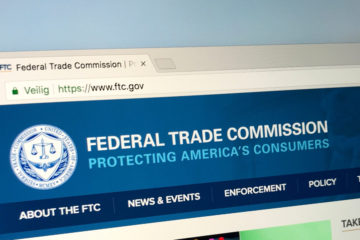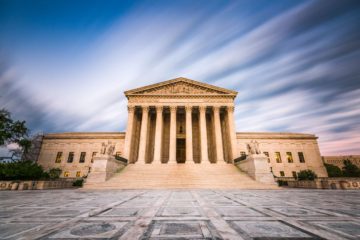The Market Institute President Charles Sauer has a new article in Real Clear Markets highlighting fiscal mismanagement of some Caribbean island nations.
He writes:
“In Atlas Shrugged one of the heroes–Francisco d’Anconia– has his company stolen from him by a greedy country. It doesn’t seem like that would happen in today’s modern economy, but in some rogue locales these things really still occur.
The U.S. territories of Puerto Rico and the Virgin Islands have had their fair share of financial woes and mismanagement, which led to the former being put through the equivalent of bankruptcy and the latter likely needing to avail itself of a similar move sometime in the near future.
However, examples of fiscal mismanagement and a marked indifference towards financial laws are not isolated to U.S. territories: There is a widespread pattern of financial impropriety, corruption and lack of oversight throughout the Caribbean.
For example, the Bahamas is fighting to salvage its financial reputation following the now-infamous FTX meltdown late last year that has led to intense scrutiny of their regulatory framework and oversight of financial activities.
Disgraced crypto billionaire Sam Bankman-Fried (SBF) domiciled his FTX crypto exchange in the Caribbean tax haven while it defrauded investors out of billions of U.S. dollars. The Bahamas, known for its “private banking and wealth management services”, essentially enabled SBF to hide his fortune and fraudulent activities shielded from U.S. authorities and financial regulators until his Ponzi scheme collapsed.
Also helping to drive this narrative are the Dutch “constituent countries” of Curaçao and Sint Maarten, which have proven to be hotbeds of corruption and maintain a cavalier attitude towards the rule of law. The U.S. State Department lists Curaçao as a “major money-laundering” hub.
Just as in Atlas Shrugged, these countries are adopting new strategies and more dubious schemes or are just outright seizing businesses. For example, the Dutch and the Central Bank of Curaçao and Sint Maarten have targeted Nina Ansary, a prominent Iranian American author and human rights activist, and have effectively expropriated her assets.
In response, Dr. Ansary has filed a complaint against the Central Bank for its illicit scheme to seize her equity stake in a company based in Curacao called Parman International under the guise of an “emergency restructuring” for regulatory compliance.
Now, nearly 4.5 years later, there has been no indication the company is facing insolvency or is out of line with regulatory standards. Yet, the Central Bank inexplicably is holding on to control of the company and is even forcing through sales of its assets despite no immediate need for capital to ensure solvency.
Ultimately, the complaint is symptomatic of a broader issue of financial mismanagement and poor regulatory oversight of the Curaçao and Sint Maarten financial system, and is a prime example of how Caribbean territories (and their protectorates) have avoided responsibility for their fiscal negligence.
The U.S. and the E.U. bear some responsibility as well. The U.S recently pledged millions in aid to Curaçao and Sint Maarten, and the islands maintain “associated status” with the E.U., yet neither have taken steps to address the lack of adherence to the rule of law that plagues the territories.
This apathy is problematic for the island countries, which ultimately need to exhibit a modicum of respect for the rule of law in order to attract investment and resume economic growth. The U.S. Virgin Islands’ refusal to adhere to it has left its residents burdened by skyrocketing energy costs and an unreliable power grid, and Puerto Rico’s chicanery with its bondholders has also made it difficult for it to attract capital.
The lack of accountability in Curaçao and Sint Maarten, and the Caribbean more broadly, brings into question their viability as destinations for foreign investment and threaten to tar the entire region as being unsafe for capital investment.”
Read more in Real Clear Markets by clicking here.


